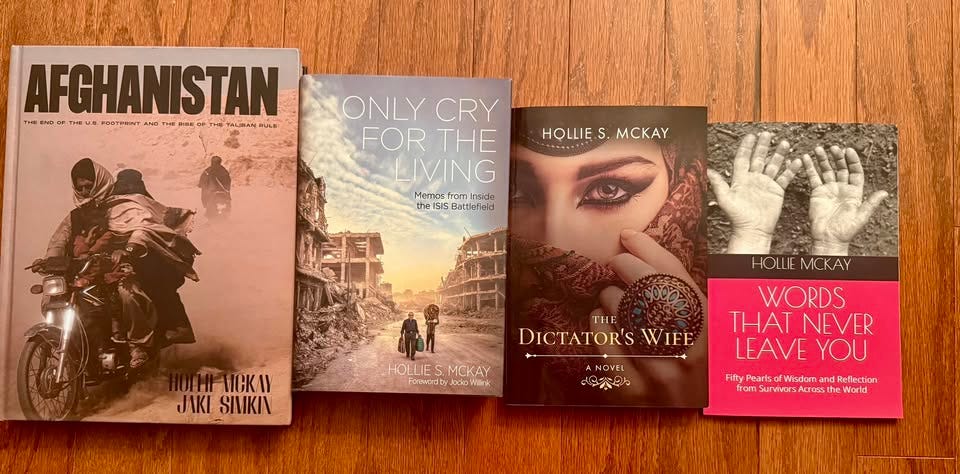It’s easy to get caught up in the frustration, the bad experiences, the horror stories that flood our social media feeds about doctors, medical interventions, and Western medicine. Algorithms, driven by engagement, amplify the loudest voices—often those of anger and distrust. As a mother, my feed is constantly filled with skepticism toward the medical field, from debates about birth interventions to the broader concerns about pharmaceutical companies and systemic healthcare issues.
And while critical conversations about medicine are necessary—no system is perfect—there’s another side that often gets lost in the noise. A side that deserves recognition.
Because behind every headline, every controversy, and every social media rant, there are individuals who sacrifice their time, their mental well-being, and often their financial security to save lives. They are the emergency responders on planes, the surgeons in war zones, the pediatricians working late nights to comfort worried parents. They are human beings who dedicate their lives to helping others, often at great personal cost.
The Road to Becoming a Doctor: A Path of Sacrifice
It’s easy to forget what it takes to become a doctor. Years of grueling education, the stress of medical school, the sleepless nights of residency, and the crushing debt that many carry for decades. The average medical student in the U.S. graduates with over $200,000 in debt, stepping into a career where their first few years involve working 80-hour weeks with little sleep and immense responsibility.
And yet, despite this, they show up.
They show up for the emergency surgeries at 3 AM. They show up to deliver babies, to hold hands with grieving families, to work through a global pandemic, to comfort a terrified child getting stitches, to push through exhaustion because someone needs them.
Not every doctor is perfect. Some are cold, dismissive, or even negligent—just like in any profession. But for every bad experience, there are thousands of untold stories of kindness, heroism, and selflessness.
The Weight of Saving Lives
Imagine carrying the weight of life and death decisions every single day. The pressure of making the right call when seconds matter. The emotional toll of losing a patient despite doing everything right. The countless nights lying awake, wondering if they could have done something differently.

Medical professionals see things that most of us will never have to. They are first on the scene after tragic accidents, working tirelessly in ERs flooded with trauma. They witness human suffering in its rawest form—whether in war-torn countries treating civilians under gunfire or in neonatal intensive care units, fighting for a baby’s first breath.
And for many of them, this isn’t just a job. It’s a calling.
The Hidden Side of Medicine: Not Everyone Gets Rich
There’s a common misconception that all doctors are wealthy, that they’re profiting off of illness. While some do earn high salaries, the reality is much more complex. Many physicians, especially those in primary care, rural hospitals, or humanitarian work, earn far less than people assume.
Some dedicate their lives to serving underserved communities, working in public hospitals with limited resources. Others volunteer their skills abroad, providing free surgeries to children with cleft palates, delivering babies in refugee camps, or running field hospitals in crisis zones.
These are the doctors we don’t hear about enough. The ones treating gunshot wounds in conflict areas. The ones leaving the comfort of their homes to fight Ebola outbreaks. The ones who respond when a fellow passenger collapses on a flight.
The Big Picture: Where Would We Be Without Them?
It’s easy to criticize modern medicine—until we need it.
Until our child spikes a 104-degree fever in the middle of the night. Until a loved one is rushed into surgery. Until we’re the ones in a hospital bed, praying for another chance.
Medicine isn’t perfect. The system has flaws, and questioning it is part of progress. But let’s not allow our frustration with the system to blind us to the people within it—the people who hold our hands when we’re scared, who make impossible choices on our behalf, who dedicate their lives to healing.
So to the doctors, nurses, paramedics, surgeons, anesthesiologists, midwives, and medical researchers—thank you.
Thank you for showing up, despite the exhaustion.
Thank you for choosing a career that often demands more than it gives.
Thank you for being there in our darkest moments.
Because at the end of the day, no algorithm can ever replace what you do.
THANK YOU SO MUCH FOR YOUR SUPPORT. PLEASE CONSIDER A PAID SUBSCRIPTION TO KEEP INDIE JOURNALISM ALIVE.
For speaking queries please contact meta@metaspeakers.org
For ghostwriting, personalized mentoring or other writing/work-related queries please contact hollie@holliemckay.com
Follow me on Instagram and Twitter for more updates
Click to Purchase All Books Here




My principal thought regarding doctors is that they seem willing to pretend that if I follow their instructions I can live forever, but I’ve known that’s not true since I was 8 years old. And like many of us I have my own thoughts as to what life is worth living and what I still want in my life. When I was contemplating university life, I was told that medical schools deliberately would not enroll every qualified applicant because that would increase the number of available doctors and reduce their ability to demand higher fees for their time. I don’t really know if that was true then or now, but it was a behavior I recognized from my reading about medieval guilds which controlled who and how many could practice a specific trade with assurance of a good income versus allowing in anyone who wanted to practice that craft and possibly create too many craftsmen for too little pay.
Brilliant and as always beautifully articulated❣️